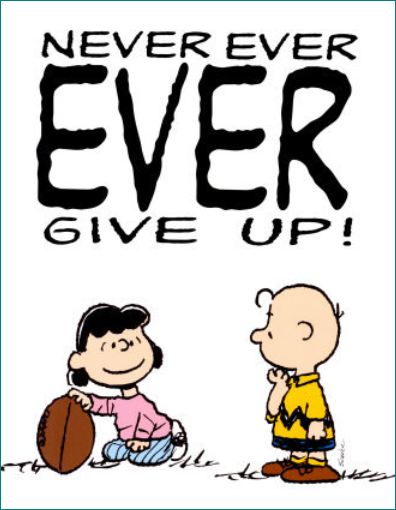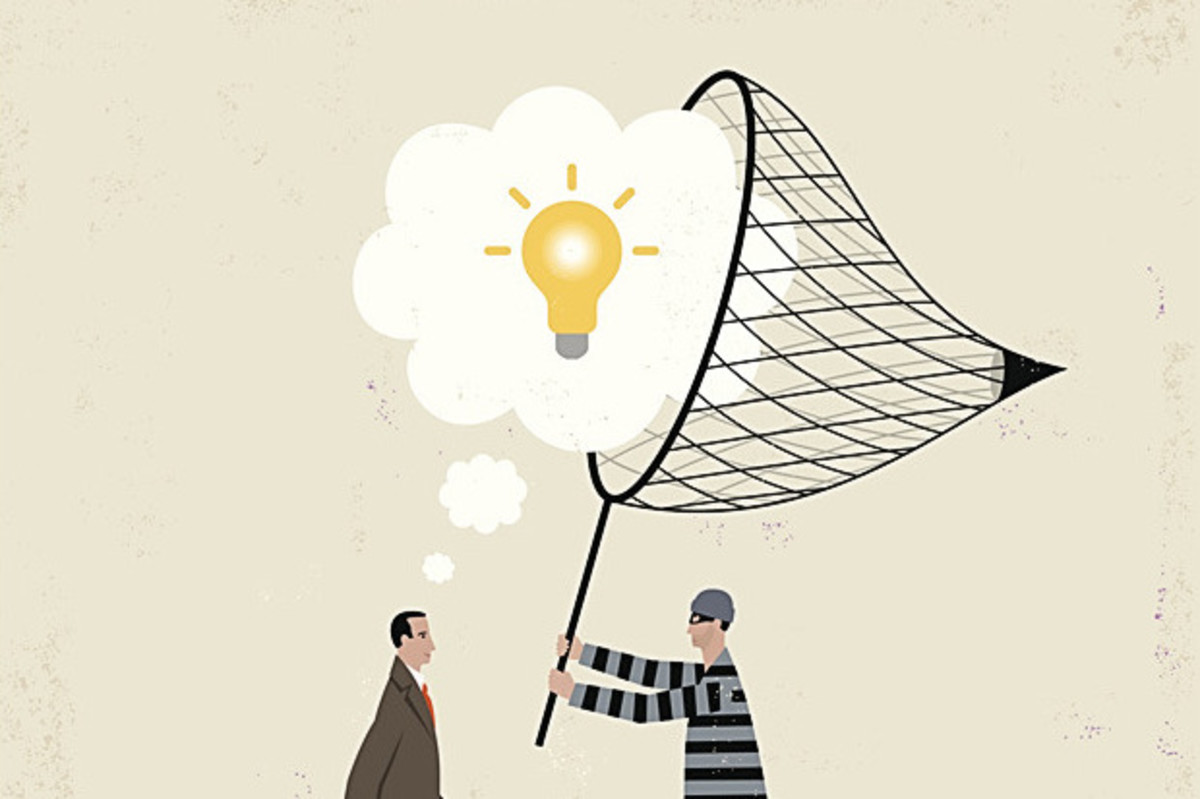Giving Up, Not in My Dictionary

Evaluating Options Maybe, But Stay the Course
When I was growing up, my father would chastise me every time I used the statement, "I can't" by saying "I can't - never did anything!" I have some ideas where that came from, possibly his father or step-father, or maybe even his mother, a very determined and hard working lady. And he was very correct. What I learned to say is I haven't been able to so far!
I just recently was introduced to "Angry Birds" for one more thing to suck time out of my day. I thought solitaire on my computer was bad enough. Now I have something that comes up with more and more ways to do the same thing over and over dulling my senses yet hitting my competitive nerve enough that I refuse to accept losing or not making it to the next level. Even at mid-night when I need to hit the hay, I'm trying to make just one more level before I go to sleep.
How can you translate that kind of veracity to win into a way of life in sales? Depending on what you sell, winning averages don't usually sound much like those of a baseball player, surgeon, or funeral director. In other words, a baseball player with a batting average of getting a hit one in three times at bat is a hero. A surgeon that saves 85-90% or better of his patients lives is a rock star in many instances, in particular for those who deal with the very sick and very near death scenarios. A funeral director generally gets 100% of the folks that are rolled in through the door. A good salesman may only win one or two in a hundred attempts - 2% of all attempted sales coming to fruition. That means 98 times they knocked on the door they were told no or not now or some variation on that.
Keeping your focus on the end result is one way of realizing a win where it surely seems you have lost. What is it that motivates you to pick up the phone one more time, or email that prospect with a little more information from a different angle. What makes you come up with a newsletter that states the same thing you just did 200 times before to the same people hoping this time they get it? The bulldog drive that a good salesman owns. That spirit of competition where they know I can't never did anything. That feeling that comes when you win a new account, and it isn't all monetary. (although that is often quite a bit of the fuel for the feeling).
Planning to expectation works in some businesses. If you are manufacturing a product and are looking for ways to streamline and save money, keep the troops along the process motivated and end up with the best product, what makes that happen? You can set up quality performance standards for each of the steps in the process and plan on employees responsible for those steps to work within the expectations. You can do the same thing for suppliers being more and more specific as to what is demanded by the process so the supplier provides exactly what is needed and expectations are fulfilled.
If you are a school teacher, you have rubrics that specify what the student's expectations are and how they will be completed - and graded against. Very cut and dried, maybe not so much in creative writing where I finally got by.
As a salesperson, entrepreneur, or marketer, the specifics shape themselves as they go. The hope is that you have done all you can to form the outcome with whatever you have applied. Occasionally you gain a bit of information that you can add to previous conversations that give you the opportunity to bring your idea back to the forefront with your prospect.
If you look at any major sculpture, like David or even something much larger, you recognize the artist didn't just wave his hand and all the rock fell way to reveal a masterpiece. No, he took a chisel, and with a vision in his mind, chipped away, one chip at a time. Being able to stay focused on the outcome from the beginning is a great mindset; even when an arm falls off.
Flexibility Not Rigidity Wins
Depending on the length of the sales cycle in getting a new company to adopt a new supplier, or if you are already their supplier, you are just trying to get them to adopt a new product, listen to changes in the needs of the customer over time. If you sell copiers and the office has fired/downsized - or doubled their workforce while you are waiting on a capital expense order that may take some time. You end up looking like a putz even if you win the sale - and it is twice what is needed or can't handle the demands of the customer.
I know situations where during a 2 year sales cycle from first presentation to actual implementation of the new product, the business actually changed hands 3 times - although the people I was dealing with never changed once. I had to qualify every one of the businesses for the purchase prior to the final order. But I finally won the order by staying with the end vision.
I am picked on for being an early adapter by many of my associates. It get me in trouble sometimes, as the old adage goes the early bird gets the worm but the second mouse gets the cheese. I try to be a smarter first mouse when I can. Many of my customers want to know about new technology when it becomes available. I have worked with multiple companies that come to me because they know I will sell their newest product to the market faster than others might. The problems coming from that can be monumental. New products don't always work out as planned and require some tweaking upon delivery which take time and cost money. New products also have a tendency to be not always tested or approved for use in the application intended. In the medical field they get away with this using products by doctors direction in what is known as "off label." It is pretty common but runs the biggest risk of not being paid for by the patient's insurance company - less likely is it will have some adverse effect on the patient.
Remember, I can't never did a thing - so try to keep "I will" on your statement of how you will start your business day.
The Inventurist









